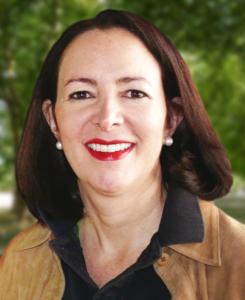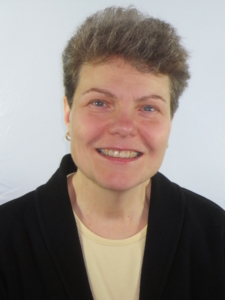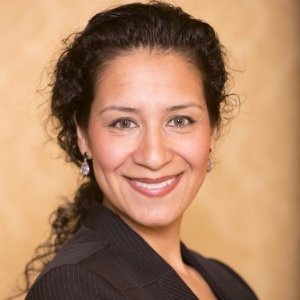 Focus on people, not just projects – that is the “aha” moment Sofya Pogreb had recently when a colleague paid her that compliment. “Spending time working with my peers, mentoring people and trying to understand their needs helps me problem solve and ultimately lead,” she said, adding that companies need to realize that their success lies more in their people and talent than anything else, especially in the fields of technology and finance.
Focus on people, not just projects – that is the “aha” moment Sofya Pogreb had recently when a colleague paid her that compliment. “Spending time working with my peers, mentoring people and trying to understand their needs helps me problem solve and ultimately lead,” she said, adding that companies need to realize that their success lies more in their people and talent than anything else, especially in the fields of technology and finance.
Born in Moscow, Pogreb moved to New York City when she was 14. She attended MIT in the 1990s with the intent of majoring in political science and becoming a lawyer. But it wasn’t long before she realized that most of her fellow students were pursuing computer science, not political science, and although the first time she’d ever touched a computer was her freshman year, she ended up with a double major in computer science and finance.
Pogreb was awarded internships at HP and Intel, and was particularly grateful for her designation as recipient of the “Intel Women in Engineering” honor, which paid a large part of her tuition.
Fascinated by marrying technology and business, she joined McKinsey & Company. “I loved working with smart people, and I enjoyed the variety of projects that the consulting life gives you the opportunity to experience,” she says.
After eight years, she left McKinsey, in part to avoid extensive travel, and landed at PayPal where she grew to run its Americas Risk Management division, leading a team of 40 risk professionals. One of the accomplishments of which she’s the proudest was her role at PayPal helping them assess the risk and reward tradeoff, considering such aspects as how aggressive they wanted to be on fraud and how liberal they wanted to be with merchants.
“My recommendations had significant financial implications, and that was a major change from a consultant relationship, where you give advice but your head is not on the line, so to speak. At PayPal, I had the opportunity to live and breathe the numbers every day.”
A True Fit at TrueAccord
Early in 2015 she left to join TrueAccord as its COO.
She is excited about the challenges inherent in her new position, although she admits she never thought she’d move from a stable corporation to a startup. “When this opportunity presented itself, the leadership team made me feel comfortable I could make it work. I see it as a once-in-a-lifetime opportunity.”
Pogreb sees TrueAccord as leading an industry sea change. “I found the passion of the team to be contagious,” she says, since the debt collection industry is ripe for a change. Although the market is significant, there has been less innovation in the past century than almost any industry.
“We believe there’s a huge opportunity to take the techniques that have been used in marketing and risk management and apply them to this industry. Everyone dreads the call from a debt collector, but what you’re trying to do is have a conversation. Through technology we can identify the right tone and language for each consumer based on what we know about them and then use automation to remind people when bills are due.”
Abandoning Assumptions about the Workforce
Pogreb had two assumptions when she started her career – neither of which turned out to be true. The first was that if she worked hard, she would be appreciated and success would follow. She did find that applicable in the early stages, when her career success was driven by working really hard and being the person on the team that the leadership could always rely on.
“As I became more senior, though, willingness to work hard became less of a factor and can even work against you,” she says. “Managers are not looking for me to work hard, but want me to be a strategic thinker and a leader.” She says this continues to be a challenge for her, but also a blessing since these days she can’t put in as many hours with a young family to attend to.
“Managers are not looking for me to work hard, but want me to be a strategic thinker and a leader.”
Pogreb’s second assumption was that she would be offered a well-defined career path, one that laid out how and when she would advance.
“This was never true,” she says. “You can’t count on your employer to map things out. You always have to have a vision in your head of what you’re working toward, and while it’s likely to change, you always have to be heading down a path you have defined.”
She adds that each decision can close some doors, but each one also leads to a learning experience, even perhaps showing you that what you thought you wanted isn’t what you had expected, and it’s time to build a new path.
Pogreb had that experience herself, when she took a break from consulting and joined a large bank, on a quest for a better lifestyle and working hours. “Professionally I have never been so miserable,” she recalls, adding that everyone has different needs but it was not for her. “Not being pushed resulted in my problem-solving skills deteriorating, and that was a huge learning moment; I overshot on my quest for lifestyle.”
However, she adds that it was still a valuable expertise, because it helped her learn about herself and what she needs to be satisfied in her career.
She suggests that women share their vision with their mentors and sponsors, who can then be aware of opportunities that might fit.
She has found sponsors to be vital to her career ascent – and they don’t have to be women, contrary to advice she had initially heard.
“When I remember all the sponsors that I’ve been lucky enough to have, most of them have been men. Men have done wonders for my career by exposing me to opportunities and supporting me when it came to promotions and new responsibilities.”
And that’s the outlook she brings to TrueAccord. She appreciates its diversity in race, gender and age but knows that the important thing is to hire and promote the person who can do the job the best.
A Homegrown Role Model
Pogreb’s work ethic has always been modeled by her mother, who was 40 when she brought her to the United States. A music teacher by training, she had hoped to teach but found it too frustrating to be expected to praise children who weren’t prepared for their lessons.
Instead, she went back to school, supporting the family by cleaning and babysitting, and became a nurse, despite a lack of medical background.
“When I start to think about any problems in my career, I focus on her trajectory — her career path was survival, with no mentors or sponsors. I admire her for pushing through and doing whatever it took to succeed. That’s what I intend to do for my family, but I know it’s a luxury that I can also work in a field I am passionate about.”
As a single mom to an eight-year-old and an 9-month old, Pogreb is devoted to providing that stable life for her children and appreciates that her company provides ample flexibility for her to balance her family priorities with work.
Though free time is hard to come by, she used to be a competitive ballroom dancer, specializing in the quick step tango. She hopes to eventually go back to it since it’s an activity that can be enjoyed at any age. And, she finds that dancing is the perfect metaphor for career success: “You have to work together to be successful.”
By Cathie Ericson

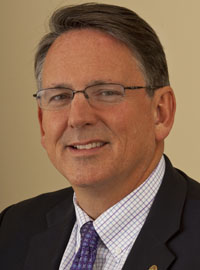
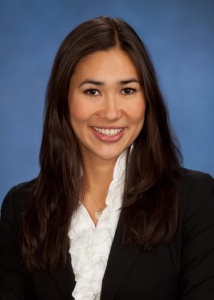
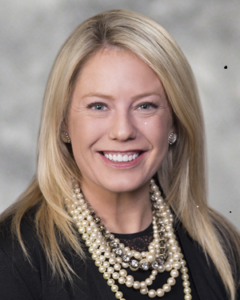
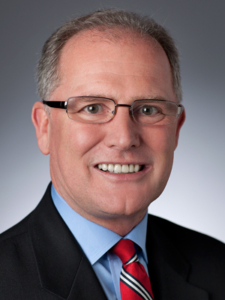
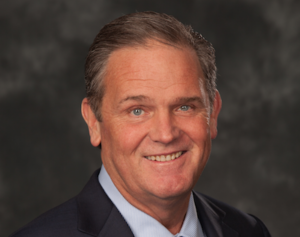 Leaders must always be conscious of the shadow they cast for their teams, says Bill Johnson, CEO of Citi Retail Services. “You can ‘talk the talk, but people watch you and your behavior, and what you do day in and day out is far more important than what you say. You should never ask anyone to do anything you wouldn’t do yourself, and you certainly should not behave in ways you wouldn’t want your team to emulate. The impression you leave behind is your shadow.”
Leaders must always be conscious of the shadow they cast for their teams, says Bill Johnson, CEO of Citi Retail Services. “You can ‘talk the talk, but people watch you and your behavior, and what you do day in and day out is far more important than what you say. You should never ask anyone to do anything you wouldn’t do yourself, and you certainly should not behave in ways you wouldn’t want your team to emulate. The impression you leave behind is your shadow.”